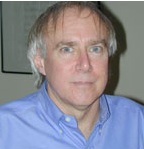New instruments like the Hubble Space Telescope and other space-based observatories, have brought cosmology into "a golden age." Cosmologists are beginning to converge on what they call a "standard model" of the history of the universe.
The universe, cosmologists calculate, is 13.89 billion years old, plus or minus half a billion years. It was born in an explosion, the Big Bang, and is expanding. Most of its material remains resides in huge clouds of invisible so-called dark matter. Recent observations have suggested that the expansion of the universe is speeding up over cosmic time, under the influence of a "dark energy" even more mysterious than dark matter.
Only 4.8 percent of the universe is made of ordinary matter. Matter of all types, known and unknown, luminous and dark, accounts for just 27.5 percent. The rest of creation, 72.5 percent, is the mysterious dark energy.
Many galaxies are rotating so fast that they would fly apart unless there was more gravity produced by invisible mass, hence dark matter. While some of it is gas or dark dim objects like stars and planets, cosmologists speculate that most of it is subatomic particles left over from the Big Bang. Yet to be discovered particles that do not respond to electromagnetism and thus would be unable to radiate or reflect light.
In 1979 Alan Guth proposed a theory of early inflation of the universe to account for its present condition. So far observations have been consistent with the predictions from inflation and the existence of cold dark matter.
In 1998 two competing teams of astronomers unexpectedly found that the expansion of the universe seems to be speeding up under the influence of a mysterious antigravity that seems embedded in space itself. This assumed force was named “dark energy.”
If dark energy is real and the acceleration continues, the galaxies will eventually speed away from one another so quickly that they couldn't see one another. The universe would become cold and empty as the continued acceleration sucked away the energy needed for life and thought.
Other possibilities exist; some unknown force that could temporarily produce negative gravity, or some mechanism which would mimic acceleration and throw all current cosmology into confusion.


